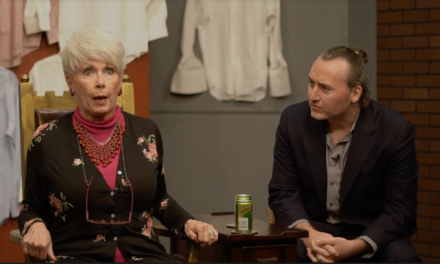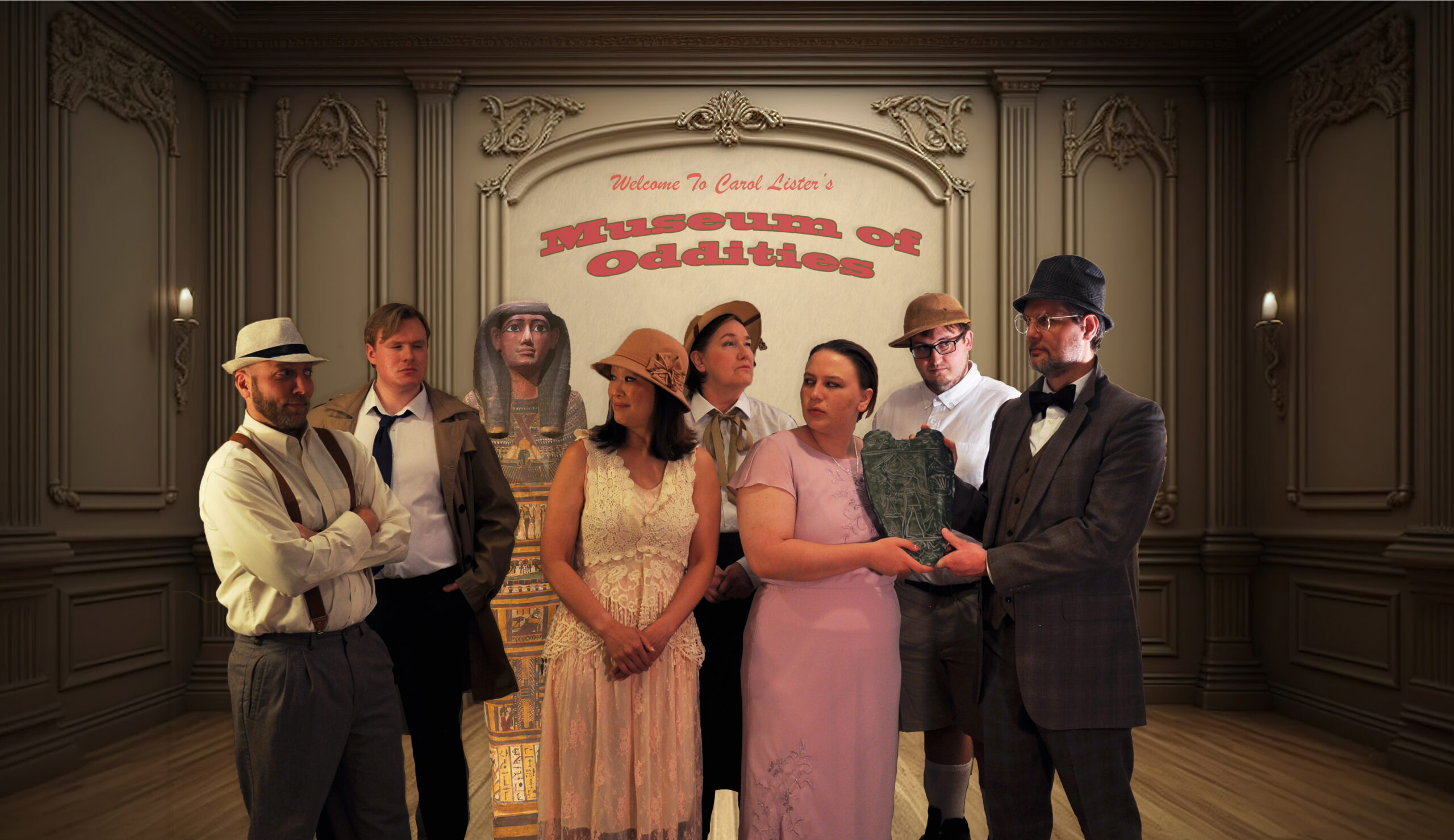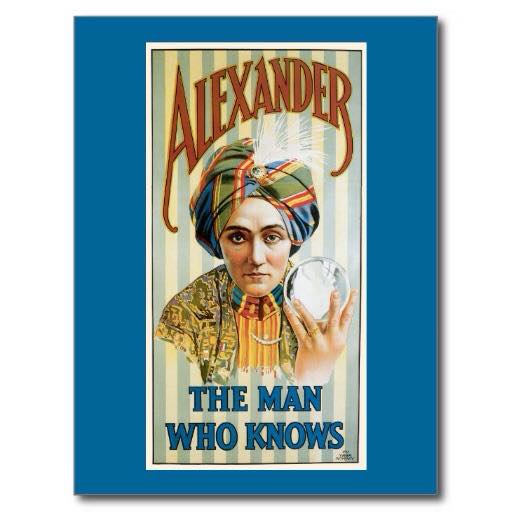Jason Maina & Maddie Gaughan. Photo: YPAS
Our Town
By Thornton Wilder
Directed by Brian Hinds
Review by Keith Waits
Entire contents are copyright © 2018 Keith Waits. All rights reserved.
Thornton Wilder’s Our Town should seem dated, a snapshot of an America from more than 100 years ago, frozen in time. No doubt many see it that way; a homily to a simpler time, the essence of nostalgia. Except that the truth of the play is that Wilder’s perspective is darker, more introspective, and far more universal than that easy assumption. It is a fine example of the overused label timeless masterpiece.
The classic three-act structure divides the story efficiently into three phases of life, but the economy in the writing never seems overly tidy. The Stage Manager is a Chorus but also an Everyman figure that allows an extraordinary level of identification for the audience. The time and place are the early 1900’s in Grover’s Corners New Hampshire, but the experience of daily routine and unspoken social contract reach beyond those details. We follow two families, the two oldest children in particular, as they play, court, and marry, and meet various other citizens of the town. The Stage Manager provides details of the political and racial make-up: mostly Republican and “English Brachiocephalic stock”, which pretty much means White Anglo-Saxon; a description made more interesting by bi-racial casting.
All of this lends the story certain innocence in the first two acts, but Wilder anchors any propensity for melodrama with a somber final act. As likely as it is that anyone reading this will be familiar with the play, you won’t find spoilers here. Audience members in front of me seemed to be, incredibly, encountering the play for the first time, and that just underscores why it is always worth revisiting.
Director Brian Hinds stages with an eye for the traditional. The empty stage is open to the back wall and allows the slightly cavernous space to suggest the physical and emotional space surrounding these characters. Ladders, a table or two, and several chairs are the only setting, although Jen Groseth’s lighting design is beautifully employed, as is her very subtle sound design; each effective used judiciously.
Ava Panagopoulos is the first female Stage Manager I have encountered, and she is measured in her authority, a confident and unhurried presence. Even though the setting is the called-for early 20th century, Hinds has dressed the character in male clothing from 300 years earlier, raising the enticing suggestion that the Stage Manager is a timeless figure dating from the earliest English settlers, forever and always telling the story of Grover’s Corners.
Unity of purpose is nicely realized throughout the ensemble. Movement and dialogue are given consistent approach. But Maddie Gaughan’s Emily Webb was perhaps the most developed character, and every emotion was discovered and rendered with purpose. I also found Mailk Smith’s Doc Gibbs compelling in his stillness and understated playing. Jason Maina was his son, George, all youthful exuberance and sweet, boyish charm, and the fact that the two actors are roughly the same age belies the father-son relationship so effectively captured. I also enjoyed Alex Amaya’s nicely tempered Simon Stimson, a character so easily overplayed.
As for the others, there was nary a misstep among them. Marissa Teague and Ava Duvall were very fine as Mrs. Gibbs and Mrs. Webb, respectively, and if Wilder’s work is dated, it could be argued that it is in the depiction of women. Yet Emily is clearly the more dominant, intelligent character in the romance with George, something emphasized in Ms. Gaughan’s performance. And the casting of a woman as the Stage Manager also provides a meaningful balance.
Does Our Town speak to our current moment in time? When Mrs. Gibbs explains that everyone should travel abroad because “…you ought to see a place where they don’t speak English and don’t even want to,” the line resonates. And the idea that a Black Doc Gibbs is an expert on the American Civil War at the height of Jim Crow in the United States is also not lost. Mr. Hinds doesn’t force any of this. He doesn’t have to. Whether or not such choices were entirely intentional or the result of the expediency of YPAS casting protocols doesn’t matter. We cannot help but bring our world into the theatre and the theatre informs our understanding of tomorrow.
Our Town
September 21, 22, 28, & 29 @ 7:00pm
Youth Performing Arts School
1517 South Second Street
Louisville, KY 40208
502.485.8355
ypas.org
Keith Waits is a native of Louisville who works at Louisville Visual Art during the days, where he is Managing Editor of their Artebella blog, and host of LVA’s Artebella On The Radio on WXOX-FM 97.1/ ARTxFM.com. But spends most of his evenings indulging his taste for theatre, music and visual arts. His work has appeared in Pure Uncut Candy, TheatreLouisville, and Louisville Mojo. He is now Managing Editor for Arts-Louisville.com.





